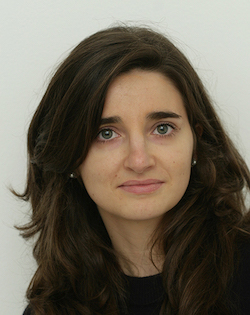
Immunology, Transplantation and Infectious diseases
Experimental hematology

The main research focus is the development, preclinical and clinical validation of T-cell based gene therapy to treat cancer. I had the privilege to initiate the suicide gene therapy approach applied to allogeneic stem cell transplantation (allo-HSCT), the first cell based gene therapy product approved for cancer patients in Europe (Bonini et al Science 1997, Bonini et al Nat Med 2003; Ciceri et al Blood 2007; Ciceri, Bonini et al Lancet Oncol 2009; Vago et al Blood 2012; Oliveira et al STM 2015).
Today, the lab is focused on the application of genome editing technologies to redirect T cell specificity and function (Provasi, Genovese et al., Nat Med 2012; Mastaglio et al., Blood 2017; Ruggiero et al., STM 2022, Cianciotti et al., Front Immunol, 2024). In recent years the experience gained in the context of T cell therapy for hematological malignancies has been translated to face the challenge of solid tumors. Through an Institutional collaborative effort, involving 18 clinical and preclinical research teams in the Institute, and through dedicated funding from AIRC5x1000, we set up a pipeline of new advanced therapeutic medicinal products (ATMPs) designed for patients with liver metastases from CRC and PDAC (ie: Potenza, Balestrieri et al., GUT 2023 https://research.hsr.it/en/divisions/immunology-transplantation-and-infectious-diseases/airc-5x1000-advanced-therapies-for-liver-metastases.html).
The lab has an Immunomonitoring sub-Unit dedicated to the analyses of immunological correlates with clinical outcome in the context of allo-HSCT (Cieri et al Blood 2015; Tassi, Noviello et al Haematologica 2023; Noviello et al Blood Adv 2023), cellular therapy gene therapy (Biasco et al STM 2015).
As Chair of the Cellular Therapy and Immunobiology Working Party of EBMT (2014-2018) I worked at a European Cellular Therapy Registry, that has now collected data from >8000 patients who received CAR-T cells in Europe and received a regulatory qualification from EMA. As a member of the EHA board of Director, I am actually involved in the GoCART Coalition (https://thegocartcoalition.com) aimed at fostering the access to engineered T cells by cancer patients.
My major aim is to actively participate to the exciting transition of cellular therapy from the investigational phase to the phase of real life by developing and validating at preclinical and clinical level innovative cellular therapy products for cancer and autoimmune diseases.
Research activity
Recently we developed the TCR gene editing approach (Provasi, Genovese et al., Nat Med 2012; Mastaglio et al., Blood 2017). With this project we completely substitute T cell specificity by editing the genome of T cells with artificial nucleases and viral vectors, thus generating tumor-specific T lymphocytes.
The Immunomonitoring sub-Unit of the lab is dedicated to the identification of immunological correlates with clinical outcome in the context of allo-HSCT, cellular therapy and gene therapy.
Recently, we showed that central memory (TCM) and memory stem T cells (TSCM) are endowed with high expansion and persistence ability, and innovative protocols for their genetic engineering have been developed (reviewed in Gattinoni et al., Nat Med 2017).
The major aim of the lab today, is to actively participate to the exciting transition of cellular therapy from the investigational phase to the phase of real life by developing and validating innovative cellular therapy products.
Danilo Abbati
Research Associate
Alessia Airaghi
Predoctoral Fellow
Chiara Balestrieri
Research Associate
Clara Bercher
PhD Student
Valeria Beretta
Technician
Barbara Camisa
Technician
Chiara Cattaneo
Postdoc Fellow
Susanna Cesarano
Predoctoral Fellow
Giulia Di Lullo
Research Associate
Matteo Doglio
Postdoc Fellow
Pierluigi Carulli
Predoctoral Fellow
Laura Conte
Undergraduate Student
Edoardo Lissoni
Undergraduate Student
Maria Chiara Maffia
PhD Student
Zulma Magnani
Technician
Francesca Marzuttini
PhD Student
Anna Miceli
Undergraduate Student
Lorenzo Mistretta
Undergraduate Student
Maddalena Noviello
Research Associate
Claudia Pastori
Technician
Alessia Potenza
Postdoc Fellow
Erica Remiddi
Undergraduat Student
Eliana Ruggiero
Project Leader
Anna Simioni
Predoctoral Fellow
Martina Spiga
Postdoc Fellow
Elena Tassi
Research Associate
Alessia Ugolini
PhD Student
Veronica Valtolina
Technician

























